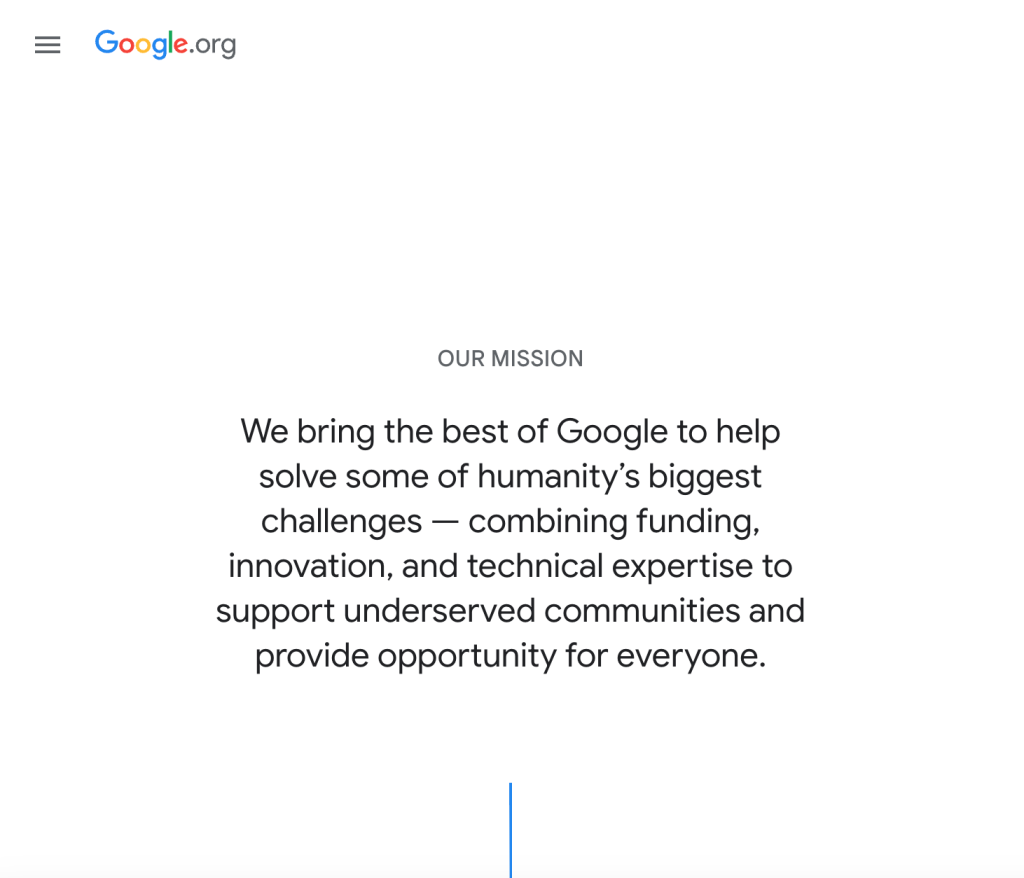In Short
- Google has launched Digital Futures project and a $20 million fund to promote responsible AI development.
- Collaborative effort to being together tech leaders, academics, and policymakers to address AI challenges.
- Google’s commitment to responsible AI, reflects a broader effort to ensure ethical AI development.
Google has introduced the Digital Futures Project, an initiative aimed at uniting diverse voices in the field of AI development. As part of the Project, Google.org has pledged a $20 million fund to foster responsible AI development.
“Through this project, we’ll support researchers, organise convenings, and foster debate on public policy solutions.”
Google Director of Product Impact Brigitte Gosselink wrote in a blog post.

A Collaborative Effort to Address AI Challenges
Brigitte Gosselink, Director of Product Impact at Google, emphasised the importance of collaboration to navigate the complexities of AI. While AI holds the promise of simplifying our lives, it also raises critical concerns such as fairness, bias, workforce implications, misinformation, and security. Gosselink underlined the need for cooperation between tech industry leaders, academia, and policymakers to address these challenges.
Initial Recipients of the $20 Million Fund
Google’s commitment to responsible AI development is exemplified by its allocation of the initial funds. The first beneficiaries of the $20 million fund include:
- Aspen Institute
- Brookings Institution
- Carnegie Endowment for International Peace
- Center for a New American Security
- Center for Strategic and International Studies
- Institute for Security and Technology
- Leadership Conference Education Fund
- MIT Work of the Future
- R Street Institute
- SeedAI
These organisations are at the forefront of AI research and policy advocacy.
The AI Arms Race Among Tech Giants
Several major tech companies, including Google, Microsoft, Amazon, and Meta, have engaged in what’s been described as an “AI arms race.” They’re competing to develop the most advanced, efficient, and cost-effective AI tools. Over the past decade, Google and Microsoft alone have invested billions in AI, including partnerships with OpenAI and the development of AI platforms like Google’s Bard, Vertex, and Duet.
The Rise of Generative AI
While AI has a long history, it gained widespread attention with the release of generative AI tool ChatGPT. Generative AI tools use user prompts to generate content spanning text, images, and videos.
Calls for a Pause in AI Development
The rapid proliferation of AI technology prompted prominent tech leaders, such as SpaceX CEO and OpenAI co-founder Elon Musk, Stability AI CEO Emad Mostaque, Apple Co-founder Steve Wozniak, and 2020 Presidential candidate Andrew Yang, to sign an open letter calling for a pause in AI development.
Warnings from Policymakers and Watchdog Groups
Policymakers and watchdog organisations have voiced concerns about the potential dangers and misuse of generative AI. These concerns have been echoed by the Secretary General of the United Nations, the Center for Countering Digital Hate, the UK-based Information Commissioner’s Office (ICO), and even the Vatican under Pope Francis.
Notable Resignation and Commitment to Responsible AI
In May, AI pioneer Geoffrey Hinton resigned from his position at Google to freely express his apprehensions about the negative impacts of AI. In July, OpenAI, Google, Microsoft, Nvidia, Anthropic, Hugging Face, and Stability AI held discussions with the Biden Administration, pledging to develop safe, secure, and transparent AI technology.
A Call for Collective Responsibility
Gosselink emphasised that achieving the right balance with AI will require the collective efforts of many, transcending the boundaries of individual companies. Google’s Digital Futures Project and the associated fund aim to support independent research in academia and civil society, advancing AI in a way that benefits all of humanity.







No Comment! Be the first one.